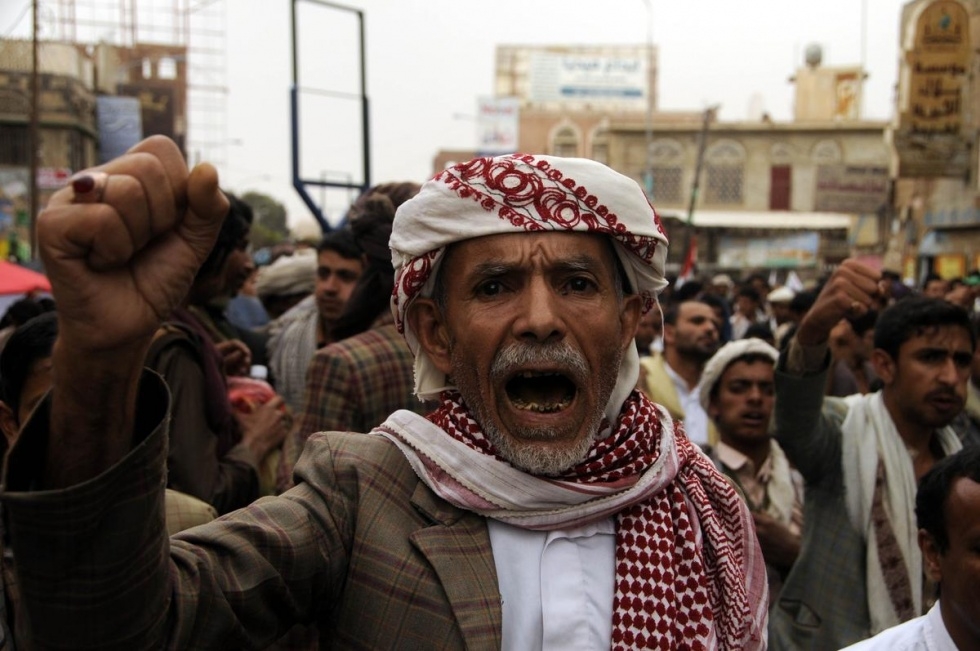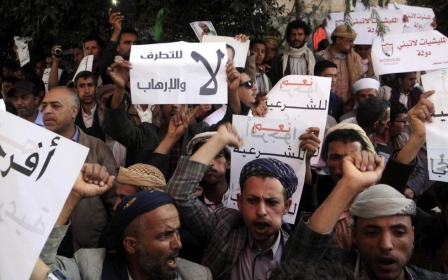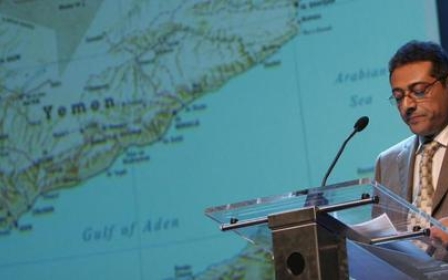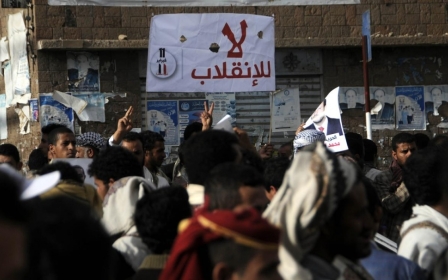Aden airport shut down as Hadi loyalists clash with rebel forces

Flights at Yemen’s southern city of Aden were cancelled on Thursday as clashes broke out between supporters and opponents of western-backed President Abd Rabbuh Mansour Hadi, killing five people and injuring 13.
Hadi had fled from Sanaa to Aden in February, escaping from house arrest imposed by the Shiite Houthi militia which had taken over the capital city since September.
The fighting originated in the Khor Maksar district, and then spread to residential districts and resulted in the closure of roads leading to the airport.
“Air traffic at Aden airport was suspended and flights cancelled,” an airport source told AFP. Special forces led by a rebel officer fought with followers of the president, as the loyalist Popular Resistance Committees spread out all over Aden.
Travellers arriving at the international airport were told to turn back because of the fighting, which broke out overnight.
One traveller said that the road to the airport was blocked by armed men.
The armed men were acting under the orders of special forces commander General Abdel Hafez al-Saqqaf, who had refused to hand over his forces, estimated to number between 1,500-2,000, to Hadi. The president had ordered Saqqaf to step down in order to be replaced by one of Hadi’s officers, in a bid to consolidate his rule over Aden.
Saqqaf dismissed Hadi’s instructions, and stated that he would only follow orders from the presidential council in Sanaa, which was formed after the president and Prime Minister Khalid Bahah tendered their resignations in January in protest at the Houthi takeover.
Meanwhile, Al-Qaeda today claimed the assassination of a senior official of the Houthis, who was killed on Wednesday in Sanaa.
AbdelKarim al-Khiwani, who was a member of the Revolutionary Committee of the Houthis, was shot near his home by two gunman on a motorcycle.
The Houthis broke the news on their Twitter feed, adding that the gunmen had “safely” fled the scene.
Khiwani, who received the Amnesty International Special Award for Human Rights Journalism Under Threat in 2008, was the head of the Houthis’ media department and a well-known journalist.
Amnesty International’s Middle East and North Africa programme director Said Boumedouha condemned the killing, saying that Khiwani’s “despicable killing today smacks of a politically motivated assassination.”
Amnesty urged a quick probe of the “despicable killing of a leading journalist and activist,” saying that Khiwani had a history of being harassed for his “outspoken journalism and peaceful activism,” adding that he was imprisoned several times during the rule of former Yemeni president Ali Abdullah Saleh.
Khiwani had represented the Houthis during national talks held under a deal backed by the UN that ended a year of protests against Saleh, who stepped down in February 2012.
The talks concluded in January 2014 with a plan to turn the republic into a federation of six regions, which the Houthis strongly opposed.
The Houthis dissolved parliament after issuing a constitutional declaration, and established a 551-member transitional council.
Most of Yemen’s political forces however, along with the neighbouring Gulf countries, described the Houthis’ takeover as a “coup against constitutional legitimacy.”
New MEE newsletter: Jerusalem Dispatch
Sign up to get the latest insights and analysis on Israel-Palestine, alongside Turkey Unpacked and other MEE newsletters
Middle East Eye delivers independent and unrivalled coverage and analysis of the Middle East, North Africa and beyond. To learn more about republishing this content and the associated fees, please fill out this form. More about MEE can be found here.




